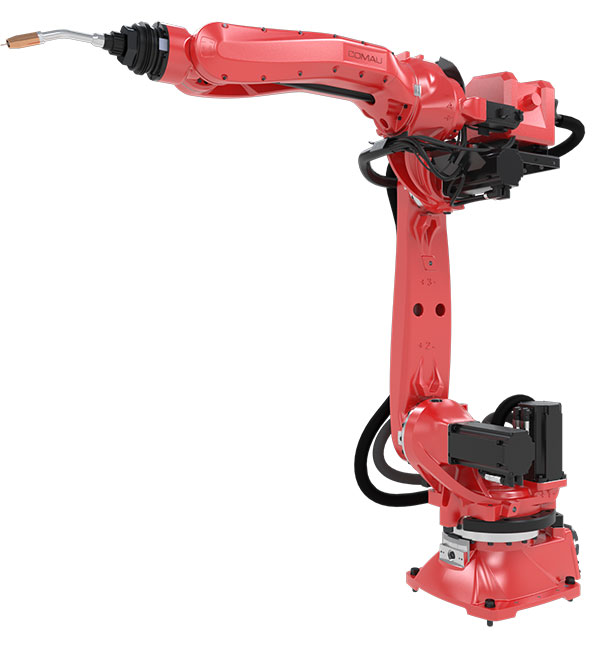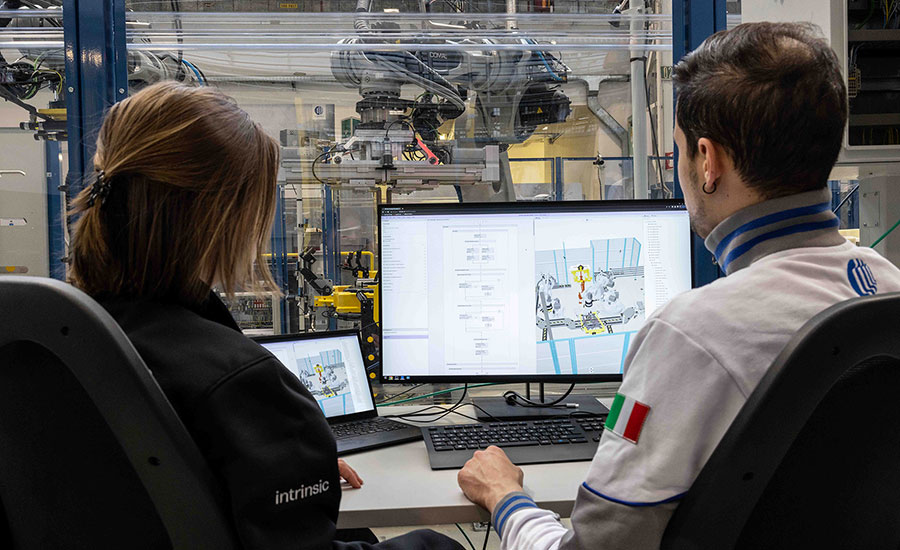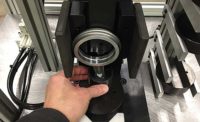It’s hard to imagine large-scale production without automation. Not only do advanced robotics possess the remarkable ability to maneuver into an almost endless array of positions, which plays a crucial role in streamlining production processes, they are also increasingly able to handle a variety of non-linear processes and variable tasks.
Over the years, Comau has increasingly focused on implementing key technology enablers that transform conventional robotics into advanced robotics. This includes empowering its robots to gather and transmit acquired process and automation knowledge. Now, by helping its customers access open, easy-to-use automation based on intelligent robots that are flexible enough to dynamically adapt to changes in the production environment, the global technology company is helping transform the Power of Automation for industries of all sizes – even those that are new to automation.
Comau is developing advanced intelligence to address the continued worldwide growth of the automation sector while making its solutions increasingly accessible and intuitive. The company expects industrial automation growth rates to reach up to 14% CAGR 2024-2030 according to internal estimates and supporting market research. With this in mind, Comau chose Automate 2024, North America’s leading automation show, to unveil its new S-Family of small and robust 6-axis articulated robots. The two new high-speed robots, characterized by their historical red design and payloads of 13kg and 18kg, are designed to meet the specific needs of assembly, arc welding, battery manufacturing and handling applications, where accuracy, repeatability, and speed are paramount.

Comau S-18 Robot designed for arc welding, e-Mobility, Food & Beverage and handling applications.
What sets the S-Family apart is its adaptability. These robots can be mounted on the floor, wall, or ceiling to optimize space without compromising performance. This level of flexibility opens up new possibilities for automation in multiple industries to automate welding, handling, foundry, automotive, and battery manufacturing processes in addition to food, beverage and general assembly applications.
Comau’s commitment to making automation easier to install and use, especially within non-Automotive markets where automation is growing fast, is yet another way the company is bringing the power of automation to an increasingly diverse sector of industries and applications. Until recently, bringing advanced automation to industries such as warehousing and logistics, food and pharma, renewable energy, shipbuilding and the construction industry has been challenging for several reasons. To begin with, they are industries characterized by dynamic, sensitive or unstructured environments compared to that of a typical automotive plant. Traditional robotics, therefore, cannot respond to the required level of flexibility and versatility. Furthermore, most of these industries struggle with a lack of skilled workers when it comes to manufacturing & automation.
There’s also the challenge of smaller footprints compared to what we find in the automotive industry. The combined result is a need to automate highly variable and/or complex process sequences within industries that have very little experience in automation. This is one reason why Comau’s new S-Family of small, high-speed robots combines efficiency and technical excellence with the features and functionality required for effective deployment within new markets and dedicated application areas.
As the market moves from mass production to batch production, a higher mix of products and greater process variability, an increasingly software-driven approach to automation is required. Next generation automation solutions will also need to be more sustainable and affordable than in the past. And with the global issue of fewer skilled workers in production, logistics, welding and other manual tasks, cobots become an increasingly viable and valuable solution to automate small and repetitive handling tasks because they easily fit into small footprints, operate safely collaboratively and cost efficiently alongside workers, and complement industrial automation lines rather than replacing them.
Comau’s advanced automation solutions will also help drive the adoption and deployment of renewable energy, as we are already seeing with hydrogen fuel cells and electrolyzers. One of the biggest challenges of green hydrogen procurement is the fundamental need to automate the manufacturing process despite the inherent uncertainties of the emerging market. Current market research suggests the industrialization of electrolyzer and fuel cell manufacturing will allow producers to lower their production costs by up to 20% in the short term, which is why Comau is already working with different companies to automate their production processes.

Comau and Intrinsic’s new Flowstate platform.
Among all this technological change, Comau is committed to helping accelerate the adoption of the next generation of robotics. We believe the answer is found at a software level. Given that advanced robotics are largely software driven, there’s a pressing need for user-friendly automation software to bridge the skills gap. Simplified programming interfaces, such as low-code or no-code platforms that can translate human language into robot commands, enable operators to program robots with simple commands such as look for an image, position to respond and execute the action required.
Comau is taking this commitment even further with the exciting work we’re doing through our partnership with Intrinsic, an Alphabet company and Google moonshot. Together, we’re bringing our joint vision of open and intuitive robotics to light. Backed by respective resources and expertise, and Intrinsic’s groundbreaking software platform, we intend to enhance the accessibility of advanced robotics and make the Power of Automation a reality for businesses of all sizes and across various industries.




.jpg?1715088265)


